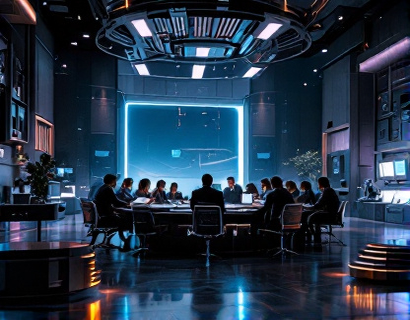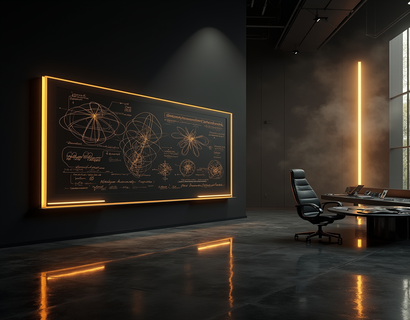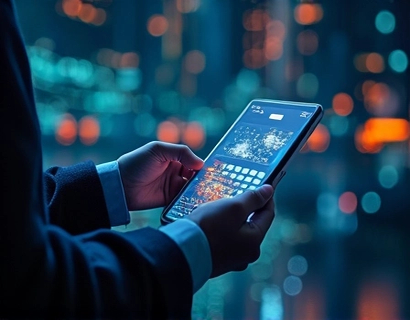Discovering the Ultimate Collection of Accessible Innovations: Top Universal Apps for Enhanced Productivity and Creativity
In an era where technology is rapidly advancing, the importance of accessibility cannot be overstated. A growing number of applications are merging cutting-edge technology with universal accessibility, creating tools that not only enhance productivity and creativity but also ensure that everyone, regardless of their abilities, can benefit from these advancements. This article delves into a curated collection of innovative apps that exemplify this fusion of technology and accessibility, designed to make advanced tools usable and beneficial for all users.
The concept of universal design in technology aims to create products and environments that are usable by all people, to the greatest extent possible, without the need for adaptation or specialized design. In the context of applications, this means developing software that is intuitive, flexible, and adaptable to various user needs. The following sections explore some of the top universal apps that are redefining how we approach productivity and creativity.
Enhancing Productivity with Universal Apps
Productivity apps are essential tools for managing tasks, organizing information, and staying efficient in both personal and professional settings. For users with disabilities, traditional productivity apps often present barriers. However, a new generation of apps is changing this landscape by incorporating features that cater to diverse needs.
One standout app in this category is Notion. Notion is a versatile workspace that combines notes, tasks, databases, and wikis into one unified platform. Its accessibility features include keyboard navigation, screen reader support, and customizable text sizes and colors. Users can create and manage their workflows seamlessly, regardless of their physical abilities. The app's flexibility allows for personalized configurations, making it an excellent choice for individuals with different requirements.
Another notable app is Todoist, a task management tool that helps users stay organized and on top of their to-do lists. Todoist offers a range of accessibility features, such as voice input, high-contrast mode, and screen reader compatibility. These features ensure that users with visual or motor impairments can easily create, prioritize, and track their tasks. The app's intuitive interface and robust functionality make it a valuable tool for enhancing daily productivity.
Trello is another powerful project management app that has made significant strides in accessibility. Trello uses a card-based system to organize tasks and projects, making it visually intuitive. Accessibility features include keyboard shortcuts, screen reader support, and customizable card colors. Users can collaborate effectively, assign tasks, and track progress with ease, all while ensuring that the app is usable by everyone.
Boosting Creativity with Accessible Tools
Creativity is a fundamental aspect of human expression, and technology has opened new avenues for creative exploration. Universal apps in the creative domain are designed to be inclusive, allowing artists, writers, and designers of all abilities to bring their ideas to life.
Adobe Creative Cloud has been a leader in making creative tools accessible. Adobe has implemented a range of accessibility features across its suite of applications, including keyboard shortcuts, screen reader support, and customizable UI elements. The Adobe Express app, a simplified version of the Creative Cloud suite, is particularly user-friendly and accessible. It allows users to create graphics, designs, and videos with simple drag-and-drop interfaces, making it suitable for beginners and those with limited technical skills.
Procreate is a digital painting app that has gained popularity among artists for its intuitive interface and powerful features. Procreate offers accessibility options such as zoom, inverse colors, and voice commands, ensuring that artists with visual or motor impairments can create stunning digital art. The app's high level of customization and performance makes it a top choice for both amateur and professional artists.
GarageBand, Apple's digital audio workstation, is another exemplary app that combines creativity with accessibility. It provides a comprehensive set of tools for music production, including virtual instruments, loops, and effects. GarageBand includes features like VoiceOver support, customizable playback speeds, and the ability to use external MIDI controllers. This makes it accessible to musicians with various disabilities, allowing them to compose and produce music with ease.
Daily Life Enhancements through Universal Apps
Beyond productivity and creativity, universal apps play a crucial role in enhancing daily life for individuals with disabilities. These apps address a wide range of needs, from communication and navigation to learning and leisure.
Microsoft Teams has become an essential tool for communication and collaboration in both personal and professional settings. Microsoft has made significant efforts to ensure that Teams is accessible to all users. Features include real-time transcription, sign language interpretation, and compatibility with various assistive technologies. The app's versatility allows users to stay connected and productive, regardless of their abilities.
Google Maps is an indispensable app for navigation, and its accessibility features make it useful for everyone. Google Maps offers text-to-speech, high-contrast mode, and the ability to save favorite locations. For users with visual impairments, the app's compatibility with screen readers and its detailed audio descriptions of routes and points of interest are invaluable. This ensures that navigation is not a barrier for anyone.
Duolingo is a language learning app that has revolutionized the way people acquire new languages. Duolingo's accessibility features include text resizing, high-contrast mode, and support for screen readers. The app's gamified approach to learning makes it engaging and accessible, allowing users of all abilities to expand their linguistic skills.
Conclusion
The apps discussed in this article represent just a fraction of the innovative solutions available today that prioritize accessibility and inclusivity. By integrating advanced technology with universal design principles, these applications are breaking down barriers and empowering users of all abilities to enhance their productivity, creativity, and daily lives. As technology continues to evolve, the focus on accessibility will remain a critical component, ensuring that everyone can benefit from the digital world.











































